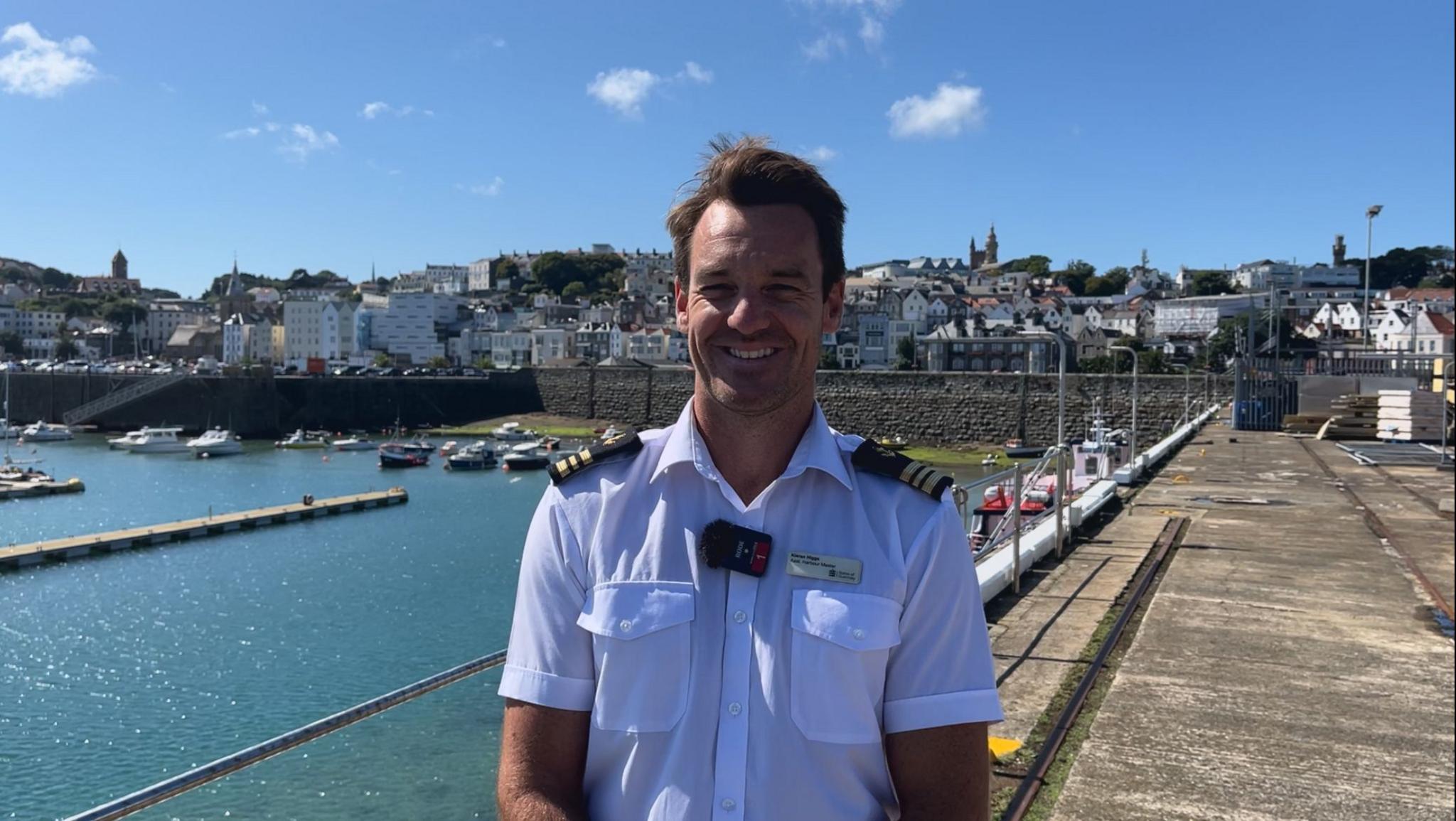'Remove shipwrecks before they get in food chain'
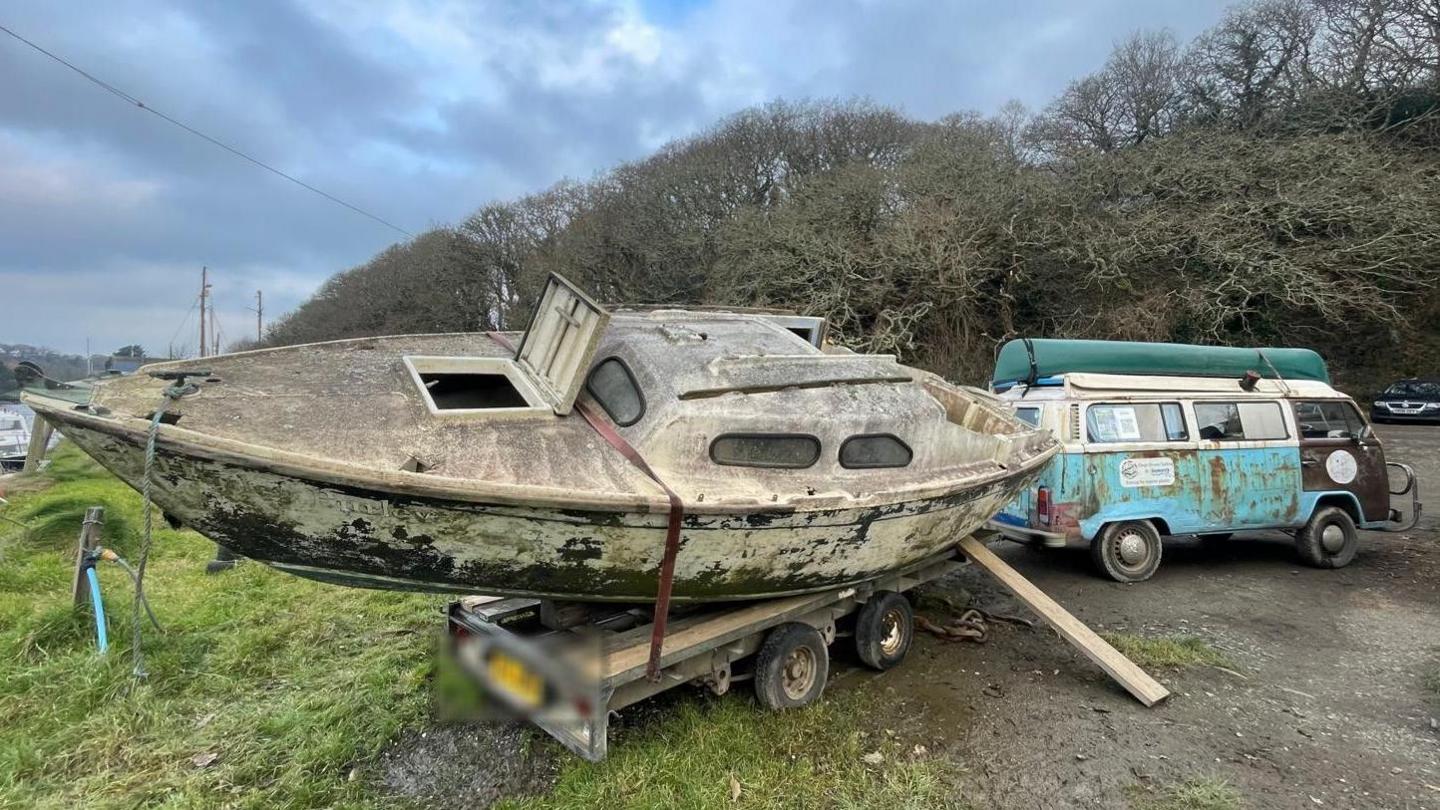
This former sailing yacht is among the abandoned boats
- Published
On a muddy foreshore on a cold February morning, a decrepit old boat is being hauled out of an estuary in Cornwall.
The 20ft (6m) former sailing yacht is among a growing number of abandoned boats around the Fal and Helford rivers, campaign group Wreck Free Fal says.
It claims as boats break up there is a risk microplastics from the wrecks enter the food chain. The group says it has been told about more than 130 boats in just two months, but there could be hundreds dating back decades in the area.
The campaigners and senior local council members are calling for registration schemes to help identify the owners of abandoned vessels.
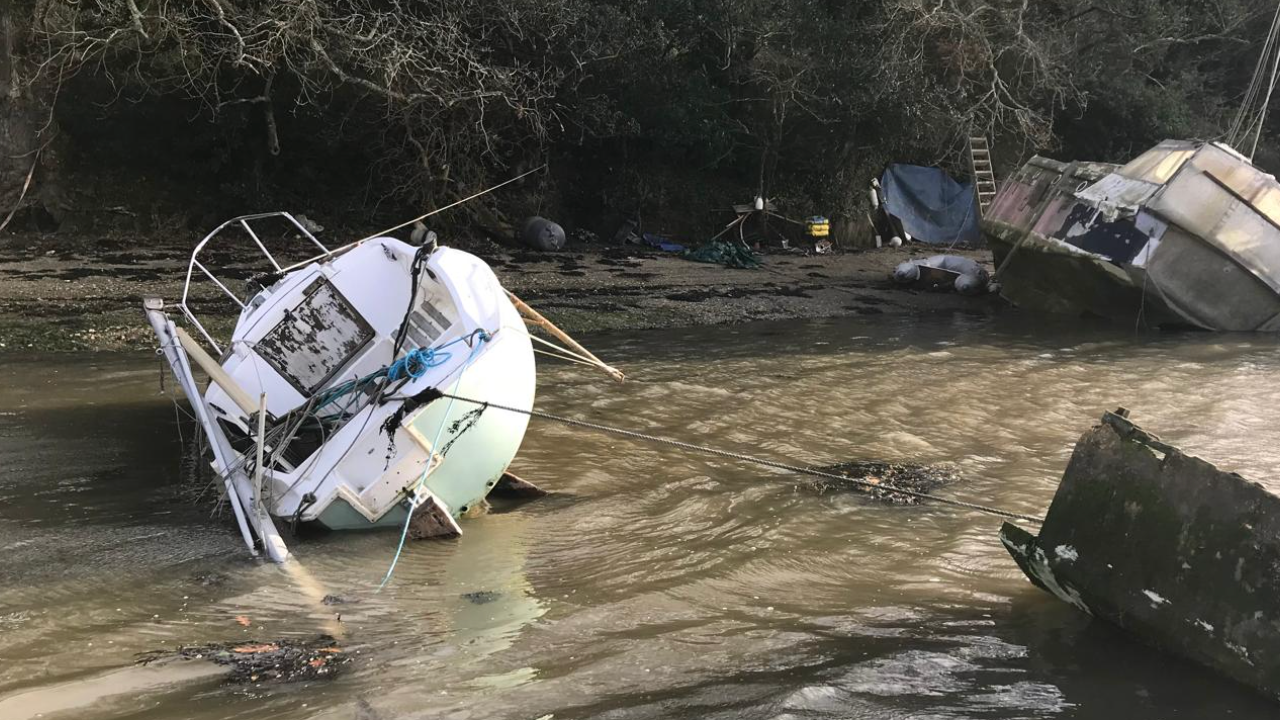
Wreck Free Fal is asking people to let them know where boats have been abandoned
Fibreglass, which started to be used for boat-building in the 1950s, is used in all types of vessels.
But many of those boats have now come to the end of their useful life and abandoned boats are a common sight around UK coasts.
"What we are seeing now is just the tip of the iceberg," says Steve Green, who has removed about 30 boats from around the Fal and Helford.
"In the next decades, all those boats that were built in the 1960s and 70s will reach the end of their lives."
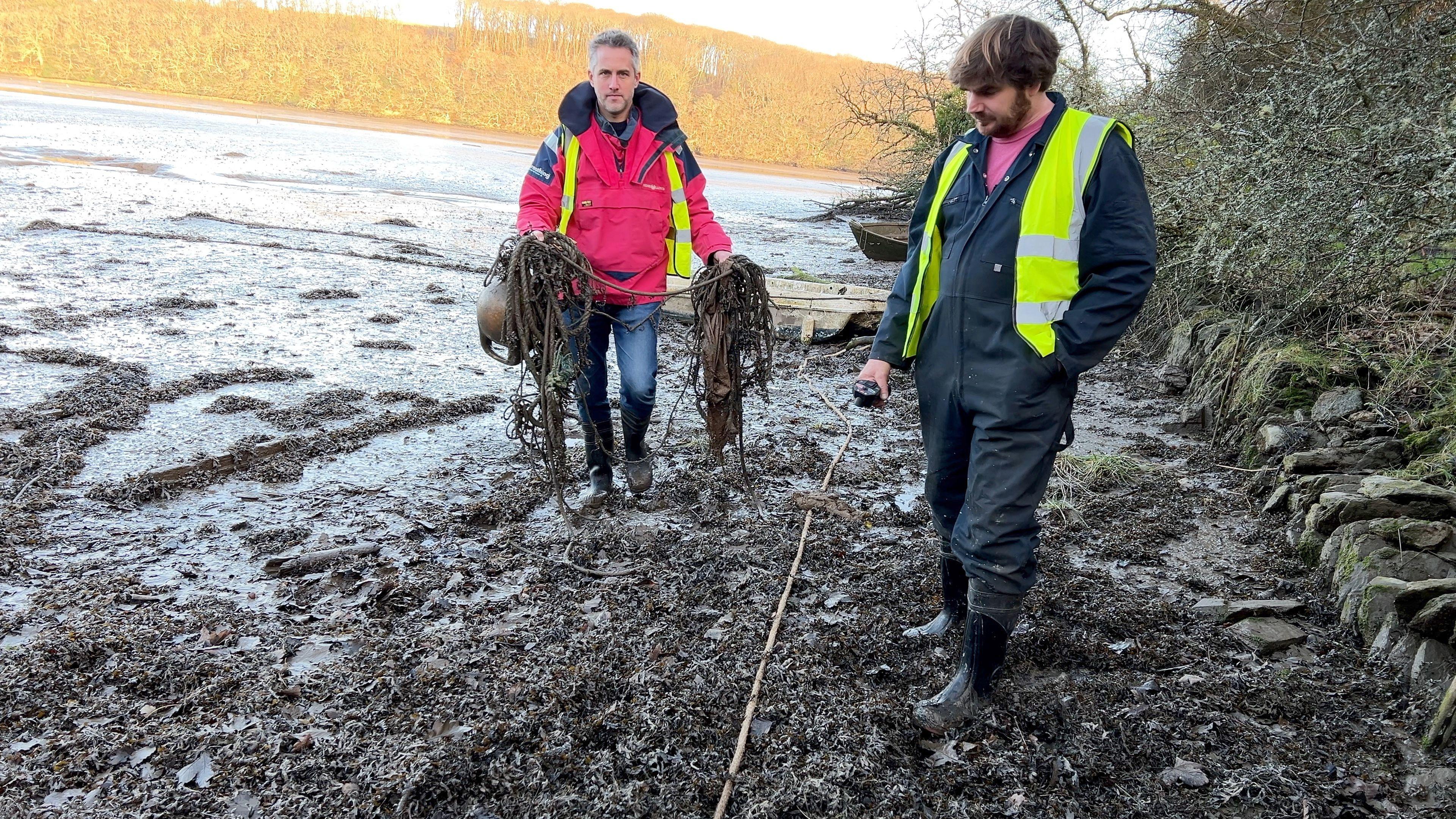
Jake Burnyeat and Steve Green start the removal operation at St Clement
Wreck Free Fal is working with harbour authorities, community groups and other stakeholders and is asking people to report abandoned boats on its website.
Warning notices are placed on abandoned boats saying they are at risk of being removed and permission is being obtained from landowners.
Jake Burnyeat, of Wreck Free Fal, says: "Everywhere you go, there's end-of-life, mainly GRP [glass-reinforced polyester], boats rotting away in corners of the creeks.
"They rot away, leaking diesel and oil and toxic paints and, ultimately, microplastics into the ocean."
'Dumping ground'
Abandoning vessels in the area is prohibited, with a potential financial penalty of up to £1,000.
Long-term the group is pressing for a boat registration scheme like ones in France, where an annual levy is used to pay for the disposal and recycling of boats.
Mr Green says: "People are becoming more informed about the problems and, hopefully, they'll be more sympathetic to the idea of compulsory boat registration.
"You can't just leave a big piece of plastic on somebody else's foreshore and walk away and leave it. It's just not OK."
At the riverside hamlet of St Clement, near Truro, Mr Green and Mr Burnyeat are removing an old dinghy.
Without a local recycling route, this boat and others which are recovered are simply going to landfill.
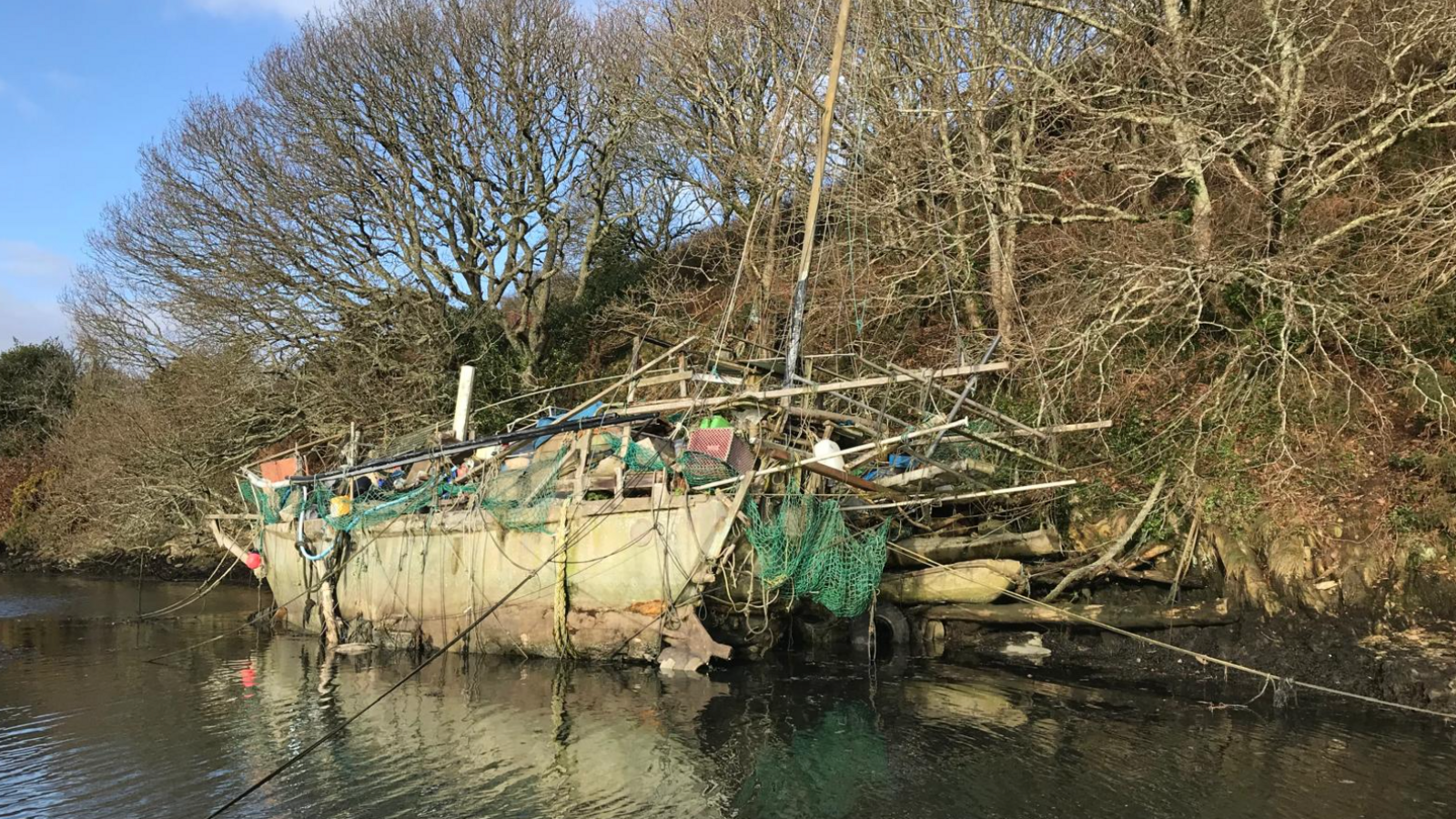
Campaigners say the long-term solution to abandoned boats was a registration system
Miles Carden, chief executive of Falmouth Harbour Commissioners, praises the efforts of Wreck Free Fal to map the number of abandoned boats on its website.
"When we get really sound evidence, that's a really powerful thing to go to government with, saying this is the problem, and we just need to deal with it because it's an environmental disaster over time," he says.
Mr Carden backed a registration fee for boat owners, though he acknowledged the difficulties in implementing such a system.
"Who's going to collect that fee? Who's going to manage that fee? And there isn't, seemingly, a lot of interest in national government to look at that," he says.
"These fiberglass boats, they're often not stripped out – engines, oil, anti-fouling paints all going into the marine environment.
"But I think the real impact is the long-term environmental damage being done by irresponsible boat owners dumping boats up these creeks," he says.
The 25,000-acre Tregothan Estate on the Fal has been working with Wreck Free Fal.
Jonathon Jones, from the tea-producing estate, says: "It's a massive concern when people buy boats that they haven't thought about how they're going to get rid of them at the end of their life.
"We don't want people to use it [the Fal] as a dumping ground because it's a special environment."
Martyn Alvey, Cornwall Council cabinet member for environment and climate change, says abandoned boats are an "ongoing and ever-increasing challenge".
He says "When you have a boat that is abandoned, it is often all but impossible, if not impossible, to trace the rightful owner or the person who has abandoned it.
"So some form of registration scheme would clearly make a difference."
Follow BBC Cornwall on X, external, Facebook, external and Instagram, external. Send your story ideas to spotlight@bbc.co.uk, external.
- Published29 December 2024
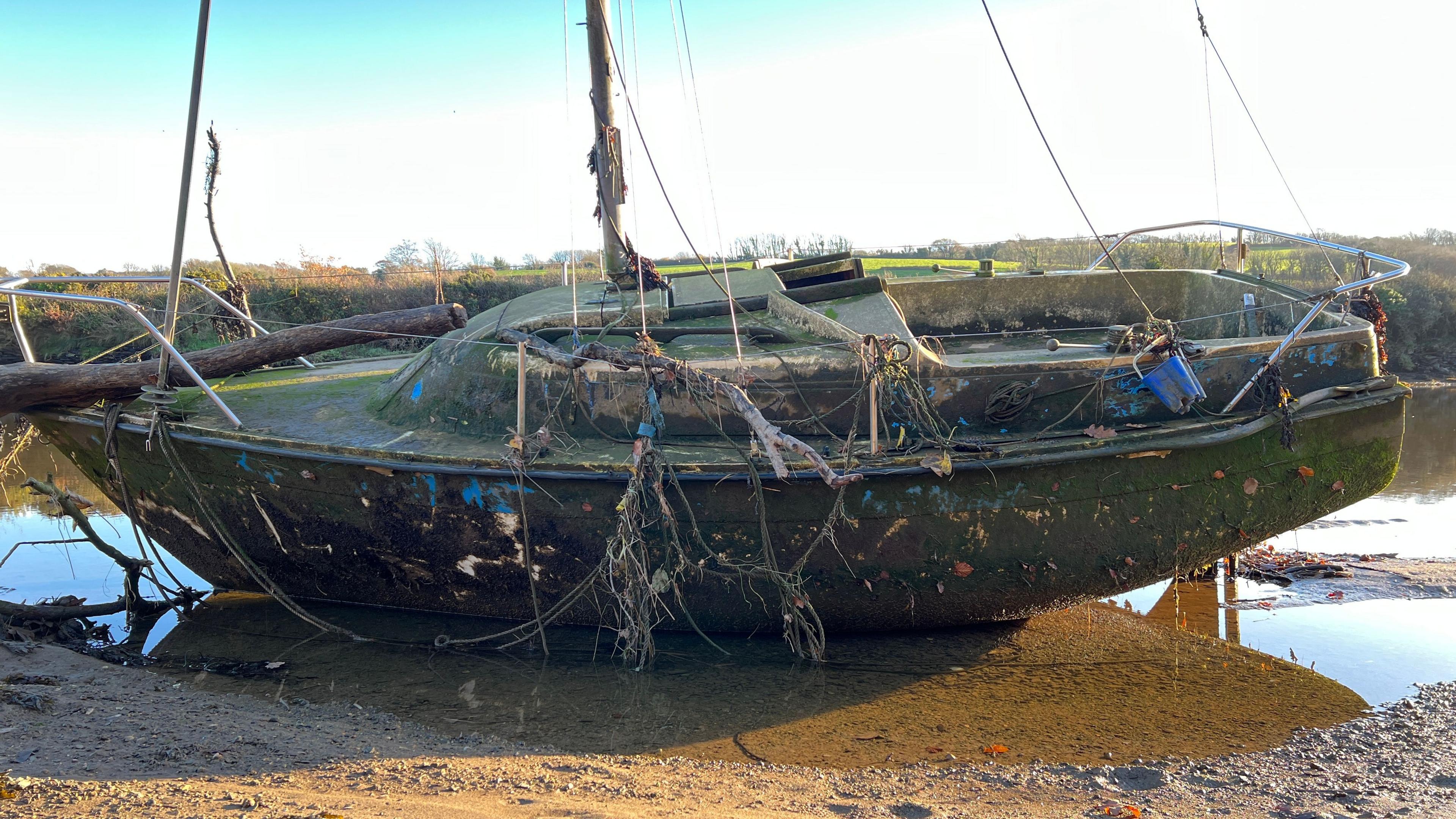
- Published3 February
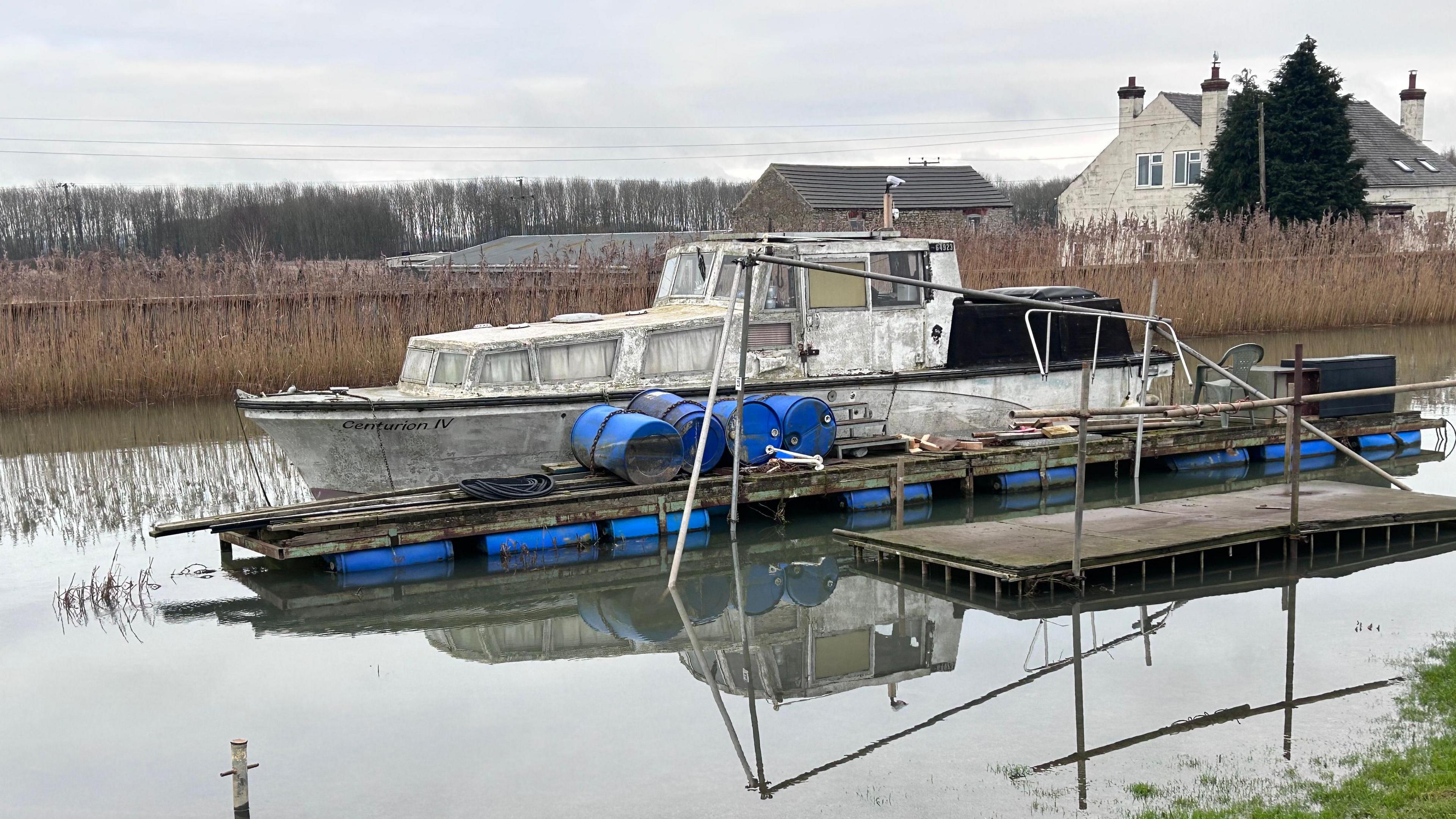
- Published1 September 2017
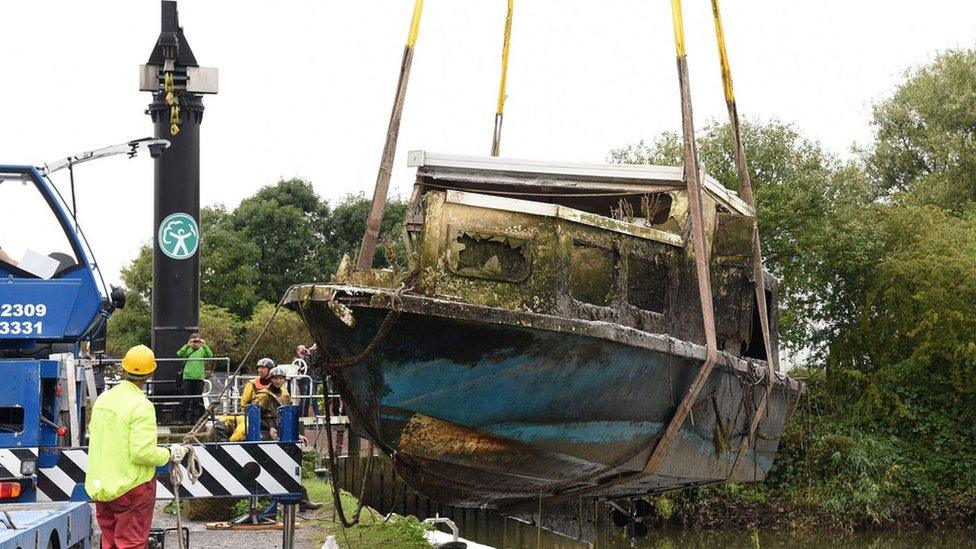
- Published31 August 2024
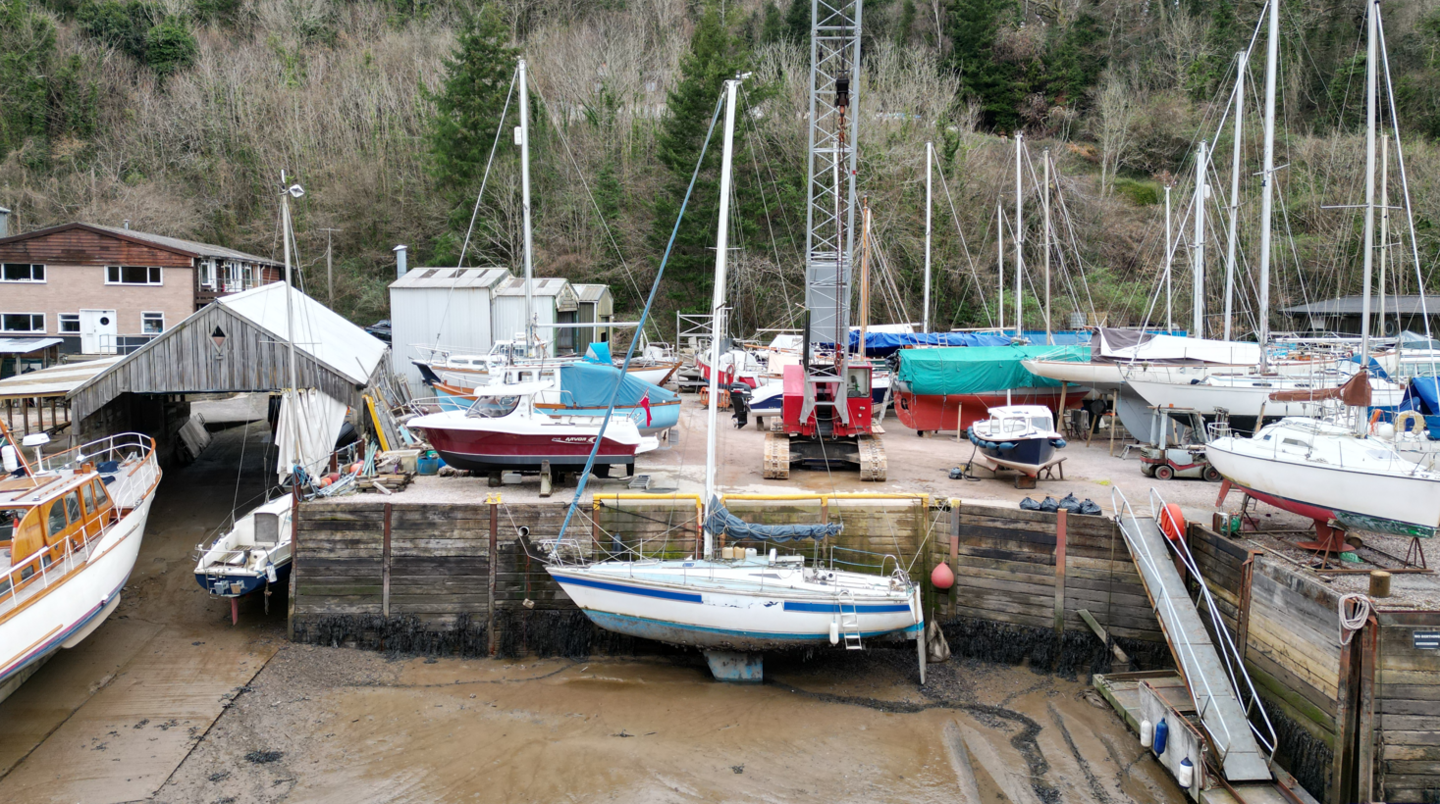
- Published5 July 2023
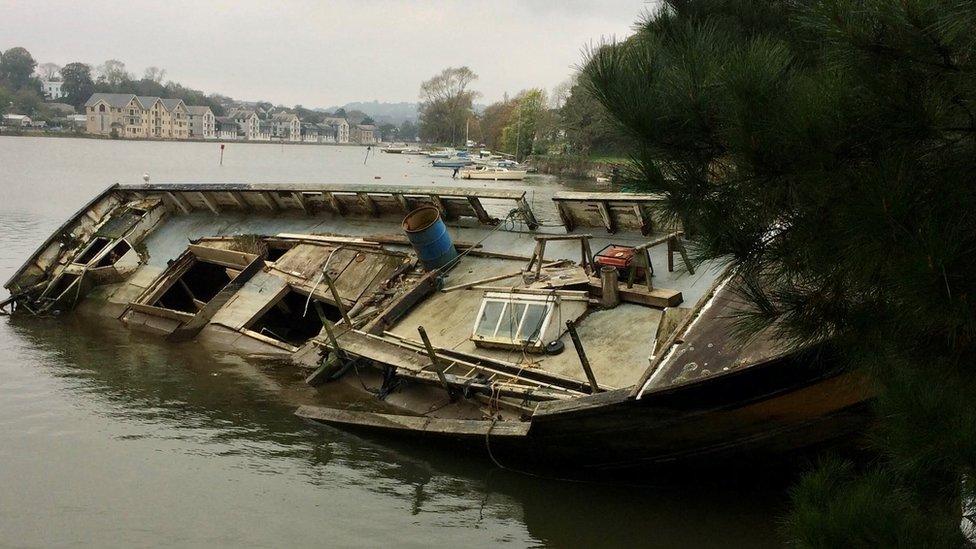
- Published12 September 2024
